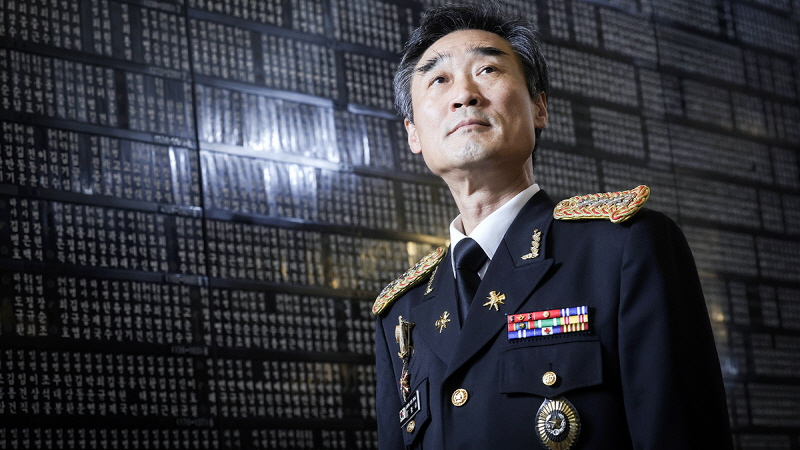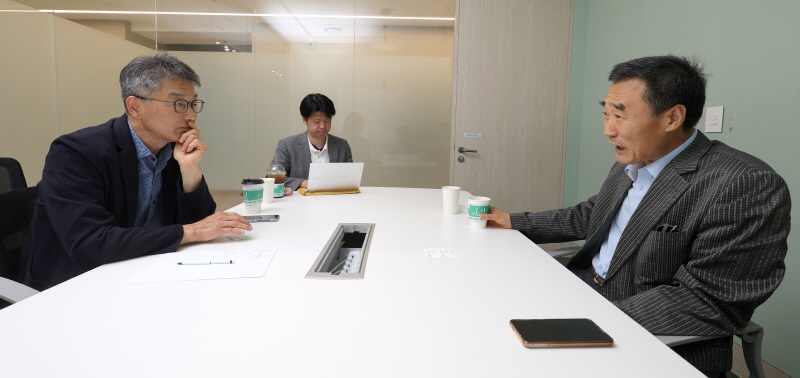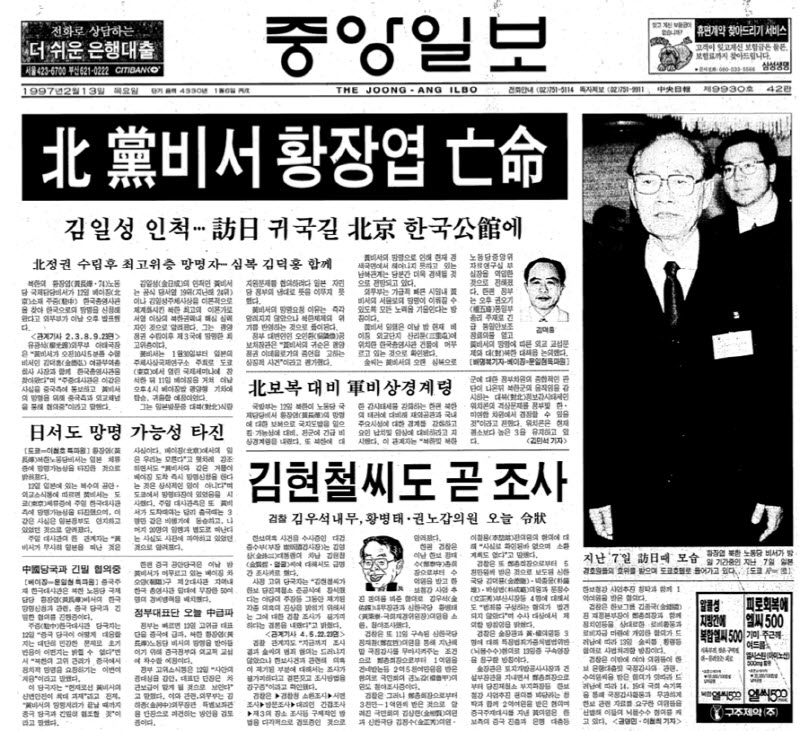[Exploring the North-South ‘Spy War’]
Part 2: The life and times of South Korean operative Chung Kyu-phil
Colonel Chung Kyu-phil, a former military officer of the South Korean Defense Intelligence Command (DIC), was a seasoned operations officer deeply involved in the North-South spy warfare.
Chung retired in 2019 after 37 years of military service, including 26 years as an operative focused on North Korea.
A graduate of the Korea Military Academy and a veteran of the HID (Headquarters of Intelligence Detachment, a North Korea infiltration unit), Chung had experience in both covert black operations and overt intelligence missions, making him an elite operative.
His background, which includes training with the HID and various covert missions, positioned him as one of the most elite operations officers of his time. As a member of the DIC, which is tasked with overseas intelligence and classified information gathering, Chung was both a public figure within his organization and a secret agent in the field.

During the Lee Myung-bak administration (2008-2013), Chung was discreetly involved in several historic incidents, including the establishment of a secret North-South communication hotline, high-level unification talks, and the negotiations leading to the release of Kim Young-hwan, author of the “Steel Letter,” who had been detained in China.
Chung was born in Yeongil, Gyeongbuk, and graduated from high school in Daegu before entering the Korea Military Academy as part of the 42nd class in 1982. He candidly chose the academy not out of lofty ambitions but because it provided food and shelter. Attracted by the English word “intelligence,” he volunteered for the intelligence branch of the military.
He was commissioned as a second lieutenant and began his military career in the Special Forces Brigade under the Second Army Command. Later, he graduated from Hankuk University of Foreign Studies with a degree in Chinese as a military-sponsored student. Up until this point, his military career had been relatively ordinary and uneventful.
However, Chung’s life took a significant turn in September 1991 when he was assigned to the HID, a special unit responsible for training operatives and conducting covert missions into North Korea. As a team leader, he oversaw a group of 9 to 13 members.
“Pig Unit”
The HID unit, often referred to as the “Pig Unit” due to its covert nature and the analogy of being “used and consumed,” was so secretive that its existence was not officially acknowledged. This unit specialized in producing “secret weapons” that could be deployed in times of crisis.
After two years as a team leader in the HID, Chung was transferred to the Namsan unit, a subunit of the DIC, in Seoul. This move coincided with the establishment of diplomatic relations between South Korea and China in August 1992, marking a new era in intelligence operations. At that time, China had become a hotbed for intense espionage activities, with intelligence agents and information from both Koreas crossing paths frequently.
Senior operations officers began traveling back and forth between China and South Korea, and Chung, serving as an interpreter, followed them closely, scouting for conditions favorable to intelligence operations. It was during this period that Chung realized that to truly evolve into a top-tier operative against North Korea, he needed to immerse himself in the vast expanse of China, a crucial battleground in the intelligence war.

Chung closely observed Shenyang, the capital of Liaoning Province in China, located near North Korea. At the time, Shenyang, home to a North Korean consulate, served as a strategic base for North Korea’s operations against South Korea.
Advised that small businesses were more favorable for covert operations than large corporations, he was introduced to a trading company called “Mancheol Materials,” which employed two individuals responsible for importing raw materials from China. Disguising himself as a retired soldier, he proposed a business venture.
“Let’s establish a branch office in Shenyang. I don’t need a salary; just cover the office maintenance costs,” he suggested.
Black operative
After more than a year of effort, he successfully negotiated the establishment of a Shenyang office. The Intelligence Agency, impressed by Chung’s audacity to develop the Shenyang route independently and self-fund his living expenses, granted him permission.
In September 1995, disguised as the “Shenyang Branch Manager of Mancheol Materials,” Chung arrived in Shenyang, marking the beginning of his life as an undercover agent. He received no specific mission orders from headquarters; his primary objective was to monitor unusual activities in North Korea, gain experience as an operative, and survive.
Chung was a black operative, meaning he operated without the protection of the South Korean government or the Intelligence Agency. If his identity were exposed or if any mishap occurred, South Korea would deny his existence as an Army officer, and the Chinese government would be left to punish him without intervention.
Chung set up a small office in the heart of Shenyang with two desks, adapting to the local environment. However, unexpected misfortune struck. Five months after his arrival, Mancheol Materials in Seoul went bankrupt and disappeared, leaving the promised $2,000 monthly support as an empty promise. Additionally, the $2,000 operational funds promised by the Intelligence Agency were suddenly cut off for unknown reasons, putting Chung’s survival at risk. He recalled this period as a time of great hardship.
Chung’s first mission: Hwang Jang-yop’s defection
In early 1997, while Chung was gradually adapting to his life as an operative, the defection of former North Korean Workers’ Party Secretary Hwang Jang-yop erupted. On February 12 of that year, Hwang sought asylum at the South Korean Consulate General in Beijing, abruptly requesting defection. North Korea reacted furiously, claiming it was an “abduction by South Korea.”
News of Hwang’s defection quickly reached Shenyang, and rumors of an assassination squad sent to kill him were widespread. A 60-year-old ethnic Korean-Chinese businessman, with whom Chung had maintained a close relationship, cautiously shared his concerns.

“A high-ranking North Korean official, who is said to be Kim Jong-il’s brother-in-law, has come to the North Korean consulate in Shenyang,” the businessman said. “They are deeply troubled about how to deal with Hwang Jang-yop. I’m meeting him for drinks tomorrow. What should I say?”
Chung’s instincts as an operative kicked in. The lyrics of a North Korean revolutionary song, “Red Flag,” which he had learned during his time with HID, flashed through his mind like a bolt of lightning.
“Once a traitor, always a traitor,” Chung said. “Whether Hwang is assassinated or dies naturally, North Korea will inevitably be blamed. Wouldn’t it be better to save North Korea’s face? I’ve heard there’s a North Korean song called ‘Red Flag’ that says, ‘Cowards, go if you must.’ Why not label Hwang Jang-yop as a traitor and a worthless piece of trash?”
“That’s a great idea! I’ll tell him just that,” the businessman replied.
Two days after meeting Kim Jong-il’s brother-in-law, on February 16, North Korea’s attitude suddenly changed. On that day, North Korea’s state-run Korea Central TV quoted the lyrics of “Red Flag,” stating, “Cowards, go if you must. We will uphold the red banner of revolution to the end,” effectively acknowledging Hwang Jang-yop’s defection.
The Hwang Jang-yop incident began to settle down. The businessman claimed he had relayed Chung’s advice, disguised as his own, to Kim Jong-il’s brother-in-law over a late-night whiskey session. However, it remains unconfirmed whether Kim Jong-il’s brother-in-law mentioned the “Red Flag” lyrics to the North Korean leadership.
Chung speculated, “While Jang Song-thaek, the husband of Kim Jong-il’s sister Kim Kyong-hui, is one of his brothers-in-law, there’s also Kim Kwang-seop, the former ambassador to Austria, who is the husband of Kim Kyong-jin, a half-sibling of Kim Jong-il. The brother-in-law who came to Shenyang may be Kim Kwang-seop.”
This was Chung’s first covert operation. He had grasped the essence of espionage: a single drop of water can make a cup overflow. A single drop can tip the balance of a seesaw. The advice related to “Red Flag” may have been that critical drop.
After the storm of the Hwang Jang-yop incident subsided, new orders were issued to Chung.
(To be continued)
BY DAEHOON KO, MINSANG KIM, YOUNGNAM KIM [ko.daehoon@joongang.co.kr]





